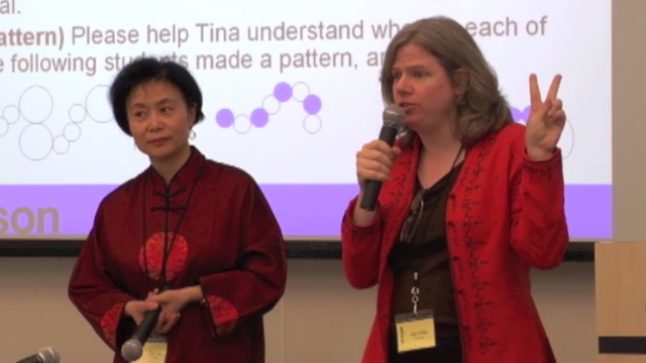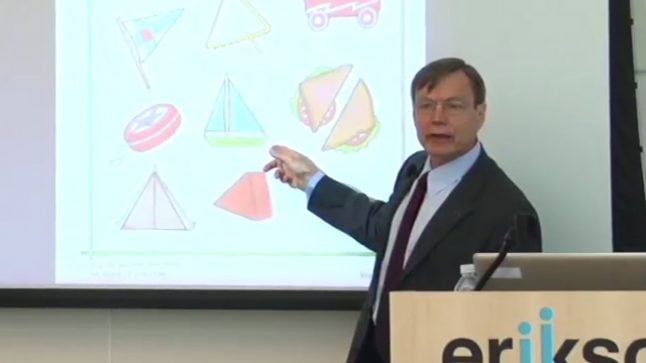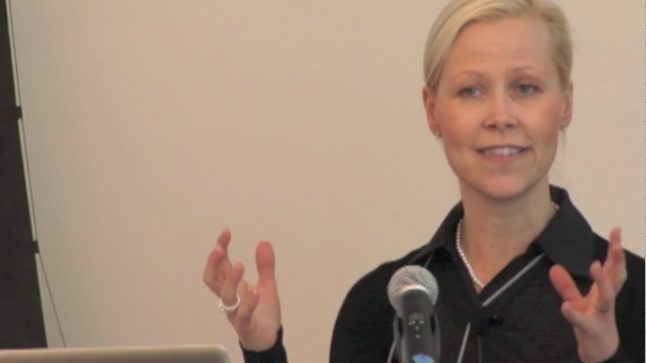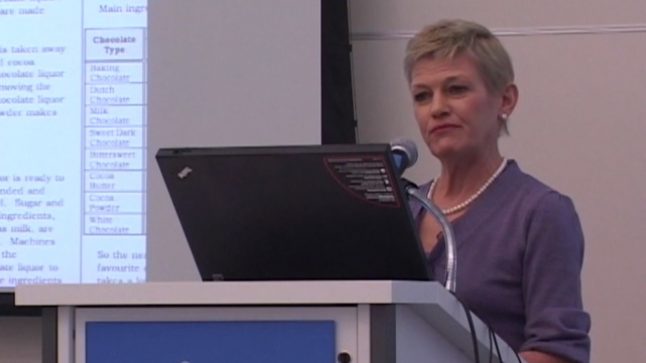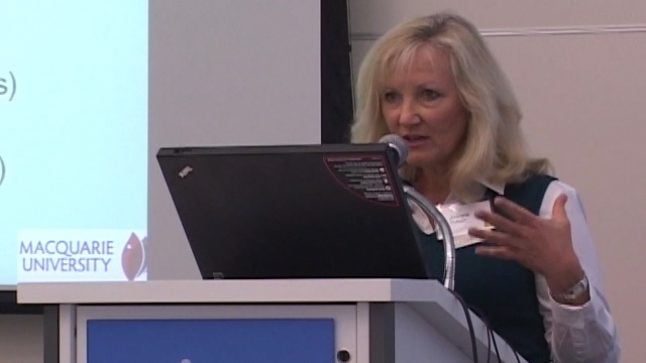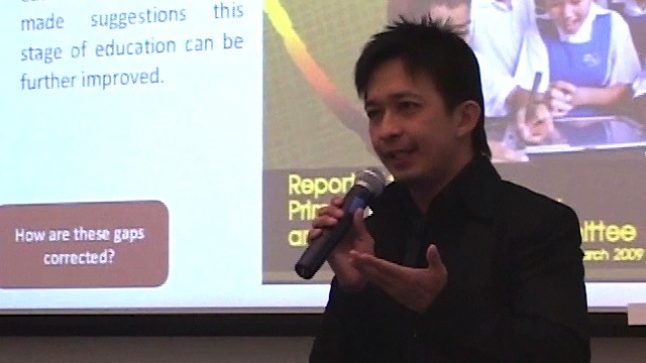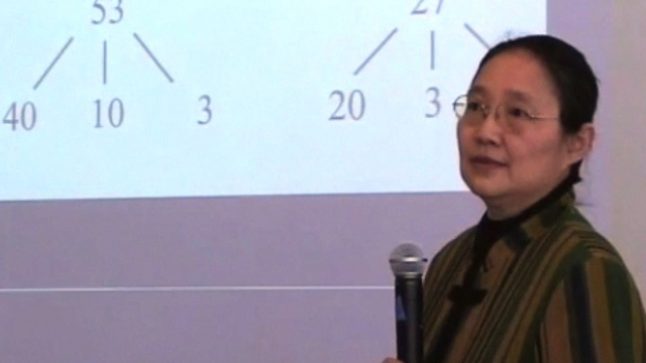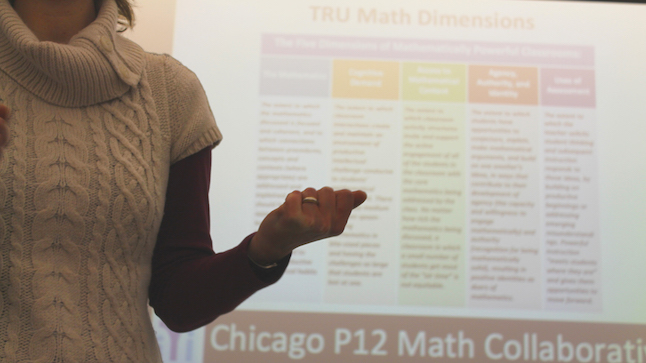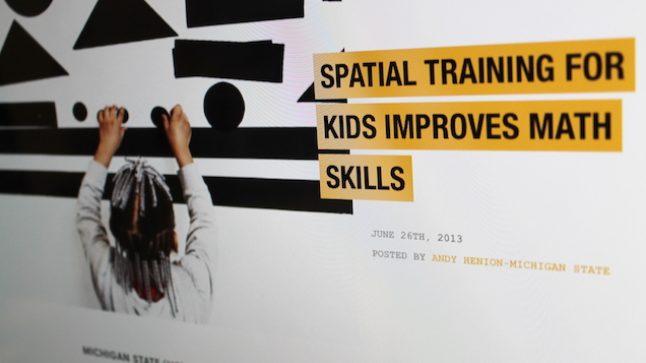2nd Grade Math
Series: Hear from the Experts
What Teachers Know About Math with Jennifer McCray and Jie-Qi Chen
September 17, 2013
Jie-Qi Chen and Jennifer McCray review answers they received from a survey administered to early education teachers. The survey prompted the teachers to imagine that they were giving advice to a new teacher, "Tina," who had some questions about parts of the curriculum.
- Age/Grade Level: Adult Learners, Pre-K, Kindergarten, 1st Grade, 2nd Grade, 3rd Grade
Series: Hear from the Experts September 17, 2013
Imprecise Geometry with Doug Clements
Geometry and measurement are often difficult topics for young math students. Doug Clements argues that part of this problem stems from classroom materials that are inexact and misleading. "At its fundamental base, mathematics is about…
- Topic: Shape
- Age/Grade Level: Adult Learners, Pre-K, Kindergarten, 1st Grade, 2nd Grade, 3rd Grade
- Tags Doug Clements
Series: Hear from the Experts September 6, 2013
Early Education in Finland with Kristiina Kumpulainen
Finland's educational system is regularly ranked among the best in the world. Surprisingly, Finnish children are not required to go to start attending school until they are seven years old. Kristiina Kumpulainen explains the specifics…
- Age/Grade Level: Adult Learners, Pre-K, Kindergarten, 1st Grade, 2nd Grade, 3rd Grade
Series: Hear from the Experts August 26, 2013
Mathematical Modeling with Lyn English
Lyn English explains an exploratory method of teaching math. "The children's learning was extended beyond the curriculum because they discovered a lot of the mathematical ideas themselves."
- Topic: Data Analysis
- Age/Grade Level: Adult Learners, Pre-K, Kindergarten, 1st Grade, 2nd Grade, 3rd Grade
Series: Hear from the Experts August 26, 2013
Comparing Tech and Real World Teaching Tools with Joanne Mulligan
Joanne Mulligan questions the efficacy of new electronic educational devices.
- Topic: Shape
- Age/Grade Level: Adult Learners, Pre-K, Kindergarten, 1st Grade, 2nd Grade, 3rd Grade
- Tags Technology, Joanne Mulligan, Blocks
Series: Hear from the Experts August 26, 2013
Shrinking the Gap in Math and Reading Skills with Yeap Ban Har
In Singapore, kindergarten is not mandatory. Yeap Ban Har explains how first- and second-grade teachers in Singapore compensate for the inevitable gap in the math and reading skills of their students.
- Age/Grade Level: Adult Learners, 1st Grade, 2nd Grade, 3rd Grade
- Tags Yeap Ban Har
Series: Hear from the Experts July 22, 2013
The Concept of Regrouping with Liping Ma
Liping Ma describes some differences between American and Chinese math educators, specifically concerning the idea of regrouping. "It's always easier for children to subtract three from ten than from thirteen."
- Topic: Number Operations
- Age/Grade Level: Adult Learners, Pre-K, Kindergarten, 1st Grade, 2nd Grade, 3rd Grade
Series: Hear from the Experts July 18, 2013
Analogical Reasoning with Lyn English
Lyn English defines analogical reasoning and describes its importance and prevalence in early math classrooms.
- Topic: Sets
- Age/Grade Level: Adult Learners, Pre-K, Kindergarten, 1st Grade, 2nd Grade, 3rd Grade
Series: About Early Math July 18, 2013
Why Do the Math Wars Rage On?
Are the "Math Wars" back like a bad movie sequel? Why does the debate continue, sometimes vehemently, even when most people agree that quality math education must focus on both skills and conceptual understanding?
- Age/Grade Level: Pre-K, Kindergarten, 1st Grade, 2nd Grade, 3rd Grade
- Tags Common Core, CCSS
Series: Hear from the Experts July 18, 2013
The Connection Between Spatial Reasoning Ability and Math
Research out of John Hopkins University and Michigan State University suggests that a strong link exists between young learners' spatial reasoning and computation abilities.
- Topic: Spatial Relationships
- Age/Grade Level: Pre-K, Kindergarten, 1st Grade, 2nd Grade, 3rd Grade
Do the math.
Free videos.
Free newsletter packed with ideas.
Free professional learning modules.
